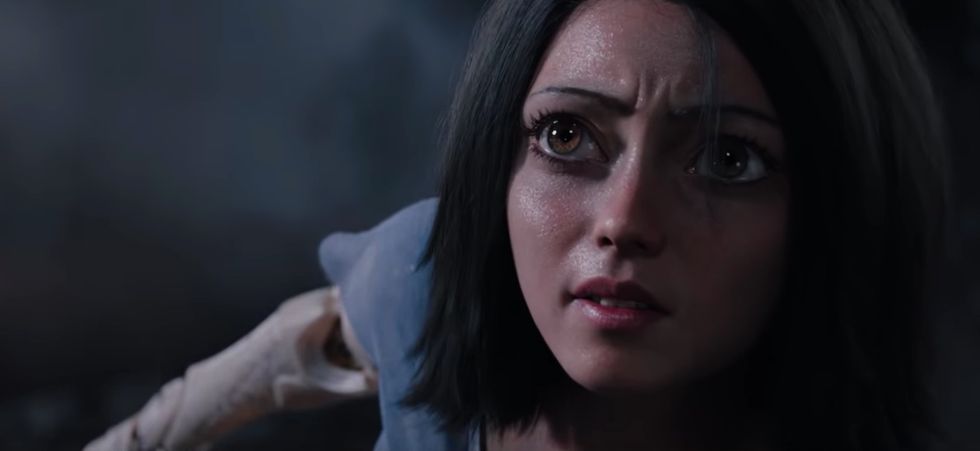Japanese animation is amazing. Part of it is because of the actual artistic style that they, which somehow makes it better to look at than American animation, and partly because of the story-writing that Japanese culture inspires. Based on which genre you're looking at you could get something that feels realistic yet exaggerated in the right ways, or you could be watching something that edges on the profound. There are a lot of titles that aim to give the viewer the pleasure of exploring interesting thoughts and ideas using stories that seem normal in their blurb but stretch out further in the 12 or 24 episodes that consist as a season.
Not to say that there isn't normal stuff in anime too, the regular hero tropes and damsel in distress and other generic themes that American animation share exist as well. But American cartoons are usually aimed at elementary school-age kids while anime is aimed at high school-aged kids, and also adults, which can be mature for our eyes at times. A lot of anime likes to wedge in philosophy or lessons in life, and being part of a Western culture these lessons are refreshing and sort of unknown to us.
At times there are a lot of Western creators who pick up the scent of profound and famous anime and decide that they want to recreate it for Western audiences. It sounds fair and good, but Western audiences aren't used to the watching anime. When comparing the most viewed shows on Netflix to the most viewed anime on Crunchyroll, the themes and stories are nothing alike. Western entertainment likes to stay grounded in reality but with twists here and there while Japanese anime likes to bend the world with some sort of anomaly or characteristic in the main character. For example, the top five airing anime have to do with a guy with insane psychic powers ("Mob Psycho II"), a world where certain people can manifest their feelings into physical beings and fight with them ("JoJo's Bizarre Adventure," part five), a mystery about a facility that raises children but doesn't let them out except for when they suddenly go missing after their release day ("The Promised Neverland"), a samurai with a body of prosthetics that all have unique abilities for him to fight with ("Dororo"), and a pirate with the ability to turn his body into rubber ("One Piece").
But previous attempts to bring Japanese stories to Western audiences have all failed. "Dragonball Evolution" barely kept in touch with the source material, made the main character much less epic than he should be and changed the very rules of the universe it's in. And it just wasn't entertaining. So people who watched it got a bad taste of "Dragonball" and also watched a bad movie. "Death Note" on Netflix was a similar experience, it was hard to watch a movie that made all the characters different from how they were in the anime. The anime was a fight of wits between a serial killer who kills for good, and an erratic detective trying to chase him down but the movie felt more a child with too much power facing off a not so smart detective. Or even the recent film "Ghost in the Shell" with Scarlett Johansson. While it kept the same universe, it left out most of the puzzle of what makes a human a human and just gave us a mashed up story from several stories in the anime.
Then a few weeks ago, "Alita: Battle Angel" comes out in theaters. And it's doing great in the box office. The concept is similar to "Ghost in the Shell," dealing with transhumanism and technology. Interestingly, "Alita: Battle Angel" started as a manga (Japanese comics), but also has an animated show and movie, which both failed. This film did something different. What new? Alita's appearance is human-like, save for her eyes, the city has been redesigned to be brighter. Dr. Ido takes a back seat in the film, several characters' story-lines have been changed up, and Motorball takes more importance in this film. And these changes were what was needed to achieve a film version of the original manga.
It made it easier for Western audiences to see the world of Iron City as a realistic dystopia caused by after-war scenarios. It was easier to swallow the culture shift since the film took a lot of time explaining what the world was like in the film. And then it slowly worked through fundamental pieces from the manga. While the rest of the movie was rushed, it didn't feel like the audience were missing things as the story connected with each other. The action was great too and properly timed to keep it interesting.
Unlike "Ghost in the Shell" (2017), "Alita: Battle Angel" does not suffer from trying to explain a difficult philosophical message about humanity vs robotics while also trying to keep the action flowing and also make the main character look cool. The world building was perfect and the way Alita was explained was smooth as well, Dr. Ido's character was important in that regard. It's not a perfect movie compared to action movies, but compared to anime adaptations, this movie was great. Seeing that the movie is still doing great a few weekends later means that the community is liking what they are seeing and are open to anime based films that do a proper job of adapting the source while altering what needs to be altered.



































